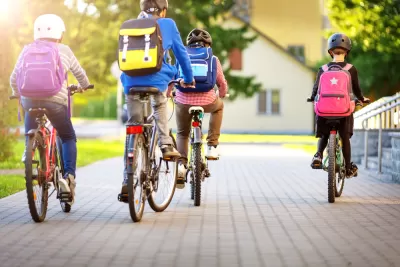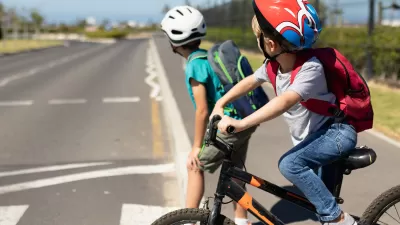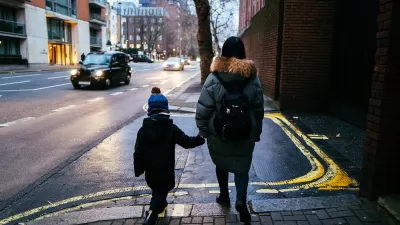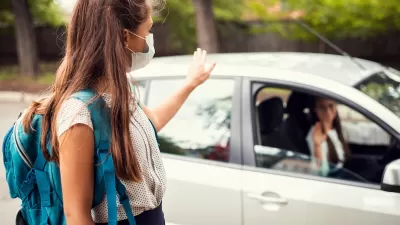A proposed bill would pave the way for school districts to use their transportation budgets to support chaperones for biking or walking, public transit passes, or other modes.

A bill proposed in the Oregon state legislature would let school districts direct funds from their transportation budgets to alternative transportation such as transit passes or ‘bike buses,’ convoys of students riding their bikes to school accompanied by one or more adults.
As Jayati Ramakrishnan explains in Oregon Live, under current law, school districts can only spend their transportation budgets on school buses. “The bill [HB 3014] comes at a time that Oregon is facing a statewide bus driver shortage. School bus drivers in particular work difficult hours and can often readily find jobs that pay more.”
The article describes several ‘bike bus’ groups with as many as 200 students participating, but notes that many of them depend on parent volunteers. According to teacher Sam Balto, who started a bike bus last year, funding walking or biking chaperones can help students get to school safely even when school bus service is reduced and has been shown to improve attendance. “The bill, Balto said, would give schools flexibility to pay for more types of transportation for students — whether a crossing guard to help kids cross a busy street or for adults to walk or bike a group of kids to and from school each day.”
FULL STORY: Oregon mulls ‘bike bus bill’ to fund alternative transportation to school

Trump Administration Could Effectively End Housing Voucher Program
Federal officials are eyeing major cuts to the Section 8 program that helps millions of low-income households pay rent.

Planetizen Federal Action Tracker
A weekly monitor of how Trump’s orders and actions are impacting planners and planning in America.

Ken Jennings Launches Transit Web Series
The Jeopardy champ wants you to ride public transit.

Opinion: Transit Agencies Must View Service Cuts as Last Resort
Reducing service could cripple transit systems by pushing more riders to consider car ownership, making future recovery even less certain.

‘Smart Surfaces’ Policy Guide Offers Advice for Building and Maintaining Urban Tree Canopies
Healthy, robust tree canopies can reduce the impacts of extreme heat and improve air quality.

New Jersey Lawsuit Targets Rent-Setting Algorithms
The state of New Jersey is taking legal action against landlords and companies that engage in what the state’s Attorney General alleges is illegal rent fixing.
Urban Design for Planners 1: Software Tools
This six-course series explores essential urban design concepts using open source software and equips planners with the tools they need to participate fully in the urban design process.
Planning for Universal Design
Learn the tools for implementing Universal Design in planning regulations.
Heyer Gruel & Associates PA
Ada County Highway District
Institute for Housing and Urban Development Studies (IHS)
City of Grandview
Harvard GSD Executive Education
Toledo-Lucas County Plan Commissions
Salt Lake City
NYU Wagner Graduate School of Public Service





























